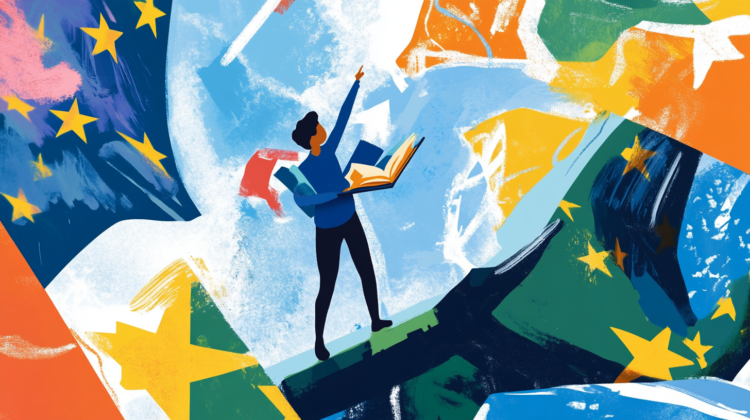Europe's education gamble: Can the EU compete in a changing world?
 Can Europe’s education and skills agenda tackle declining outcomes and innovation gaps to ensure competitiveness and cohesion?
https://www.socialeurope.eu/europes-education-gamble-can-the-eu-compete-in-a-changing-world
Can Europe’s education and skills agenda tackle declining outcomes and innovation gaps to ensure competitiveness and cohesion?
https://www.socialeurope.eu/europes-education-gamble-can-the-eu-compete-in-a-changing-world

On 1 December 2024, Ursula von der Leyen began her second mandate with a new team of Commissioners, presenting an ambitious vision for a Europe that is free, democratic, strong, secure, prosperous, and competitive. However, this vision confronts a world in turmoil: war rages in Ukraine, genocide and unrest scar the Middle East, China asserts its geopolitical influence, and transatlantic relations are strained by whispers of new trade restrictions. Amid these global challenges, can Europe’s education and skills agenda rise to contribute to the vision of a competitive Europe?
A mixed report card
The state of education and skills in the EU reflects stark contrasts. The 2022 PISA results show declining educational performance and growing inequality. While European students perform on par with American peers in reading, science, and mathematics, underachievement has risen sharply since 2018. Nearly 30 percent of EU students fail to meet minimum proficiency in mathematics, and 25 percent in reading and science. Among disadvantaged students, underachievement in mathematics is nearly 50 percent. The decline in top-performing students is particularly concerning, while East Asian states like Macao, Taiwan, Hong Kong, and Singapore consistently score at the top.
Higher education provides a more balanced narrative. Funded with €5 billion by the prior Commission, the Erasmus+ programme has led to significant investments in education quality and student mobility. But cracks show in the system. Regional disparities and brain drain weaken Europe’s higher education landscape, while the top universities in the US continue to
attract the brightest minds. Meanwhile, China’s surge in higher education, backed by massive state investment, poses a growing challenge.
The tale of innovation is bleaker. The US is the undisputed leader in fields like artificial intelligence, supported by extensive public-private partnerships, a thriving venture capital ecosystem and world-class research institutions. China has emerged as a leader in electric vehicles, green technologies, and semiconductors, accounting for over 70 percent of global EV sales. Europe’s fragmented strategies, limited venture capital, and weak tax incentives hinder competitiveness.
snip

